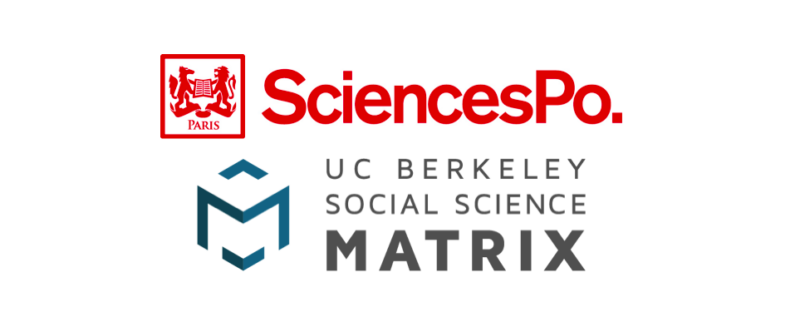A group of UC Berkeley’s administrators and university researchers will study issues related to sexual harassment and sexual violence. A team of experts in environmental management and law will explore the impacts of cannabis production on communities and ecosystems. A team of scholars in sociology, health, technology, and related areas will address important emerging questions related to genetic ancestry testing. These are just a few examples of projects that will be funded as 2018-2019 Social Science Matrix Research Teams, groups of scholars who are provided with funding to gather regularly to explore or develop a novel question of significance in the social sciences.
“We’re thrilled to have the opportunity to support and work with these teams,” said Marion Fourcade, Interim Director of Social Science Matrix. “They cover a wide range of topics, and bring together people across departments and levels of experience. Their research tackles original, timely issues and applies the sort of innovative, cross-disciplinary methods we aim to foster.”
Matrix Research Teams typically integrate participants from multiple social-science disciplines; are focused on a compelling research question with real-world significance; and deploy or develop appropriate methodologies in creative ways. Matrix supports two types of teams: Prospecting Teams receive funding in the amount of $1500 and run for a single semester, typically meeting 5-6 times to explore a new area or question of inquiry and assess whether it has potential for further investigation. Project Teams receive funding in the amount of $5000 and run for two semesters, meeting at least once a month around a defined research problem. Project Teams work toward producing an output, such as a proposal for external funding, a workshop or conference, or a joint publication.
In addition to funding, the teams receive administrative support in meetings in the Matrix offices on the top floor of Barrows Hall. All teams also receive assistance with administering their funding, as well as with research development and communications. This year’s teams were selected following a competitive process, as proposals were evaluated by faculty members from diverse social science disciplines.
Below are summaries of the 2017-2018 Matrix Research Teams, based on the teams’ winning proposals.
2018-2019 Matrix Project Teams
Community Conversations on Sexual Violence and Harassment: Narratives of Activism, Inclusion, Confidentiality, Accountability, and Healing
Incidents of sexual violence and sexual harassment (SVSH) have been a focus of national headlines this year as a social and political movement swept the country. SVSH is also a longstanding topic of interest among social science researchers nationally, and UC Berkeley administrators and practitioners are making efforts to improve SVSH support, procedure, and policy on campus. Yet there is often too little connection between the administrators and practitioners working to reduce SVSH on campus and the researchers who carry out the university’s academic mission. This Matrix Project Team will work to bridge this gap by convening a series of panel discussions among on-campus practitioners and researchers across different disciplines, including psychology, sociology, law, and community dynamics, all of which are necessary to prevent further trauma and recidivism as well as to promote healing. “Sexual violence requires an interdisciplinary solution, because it is an interdisciplinary problem,” the team wrote in their successful proposal. “With support from Matrix, we can give those working on our campus a platform to collaborate, potentially transforming our campus culture and the field of violence prevention and response at large.”
Formation of interdisciplinary research group to study the socio-ecological impacts of cannabis production
The recent legalization and regulation of cannabis production and consumption in California represent an unprecedented change in public policy that may have profound impacts on the environment and communities across the state. At this moment of change, there is a critical need for scholarship on cannabis-producing communities and their relation to the natural environment. This Matrix Research Team will address that need by bringing together faculty, postdoctoral researchers, and graduate students from the College of Letters and Science, College of Natural Resources, and School of Law to study the socio-ecological impacts of cannabis production in California, focusing on three core areas: (1) policy and regulation, (2) environmental impacts, and (3) the social relations and agricultural practices of cannabis-producing communities. They will focus on developing intellectual exchange among team members, organizing a cannabis research and policy workshop, and developing opportunities for future funding. “We understand that regulation affects farmers’ decisions and ultimately the environment,” they wrote in their proposal. “We also believe that scientific information on the ecological impacts of cannabis in turn influences farmer practices and regulation. By investigating the system as a whole, we aim to understand cannabis agriculture in all its complexities.”
Seeing Like a Valley: Locating the Moral Visions of Silicon Valley Culture
Like modern states, the industrial region known as Silicon Valley has developed through attempts to regularize, rationalize, and codify the world. These ways of knowing have favored emerging technologies and new modes of organization. But what are the effects of this developing view to the world? The “Seeing Like a Valley” Matrix Research Team will bring UC Berkeley affiliates in contact with others who are studying or intervening in Silicon Valley to understand the place of this unique region in shaping not just new technological practices, but new moral visions. The team will experiment with practices for theoretically-informed events and interventions, and will convene an international group of scholars, policy makers, technologists, journalists, artists, and activists to explore the moral visions emerging out of the world’s tech hub. The team’s work will include a series of “public encounters,” monthly field trips and bi-monthly salons that promote an active public intellectual culture across and beyond UC Berkeley, as well as monthly planning meetings on campus. They ultimately hope to produce an edited volume designed for a general audience.
Comparing the Politics of Computer Vision in the United States, China, and Europe
Artificial intelligence is increasingly being used to visualize the social world, and computer vision technologies are being developed according to divergent standards in different countries. This Matrix Research Team will study, discuss, and provide perspective on the emerging comparative political economy of computer vision. The group’s work will focus on three case studies—United States, China, and Europe— that each reflect different potential models for integrating computer vision technology into civil society: respectively, either stratifying it through new fault lines of racial and gender inequality; erasing it through bureaucratic centralization; or resisting its application in industry and private life, as with the EU General Data Protection Regulation. Based on the ongoing work of cross-disciplinary Ph.D. candidates, the researchers will share findings, organize a group-authored working paper, and coordinate a panel on the topic of cross-comparative social science research on computer vision.
2018-2019 Matrix Prospecting Teams
Causal Conversations
The proliferation of data sources and the advent of computationally intensive analytic algorithms have multiplied the possibilities for non-experimental (i.e., observational) research. Much of that research highlights prediction, yet remains agnostic about cause, a successful strategy as long as the causal structures undergirding the phenomena remain stable. This raises concerns, as practical action or public policy without an understanding of cause is blind, and methodological discussions rarely reach empirical researchers, in part because those discussions are often too formal and thus too insular. Led by Samuel Lucas, Professor of Sociology, this Matrix team’s work will explore the emerging issues and questions about causality in the digital age; the group’s work will focus on interviewing key scholars of causality from statistics, philosophy, and a variety of social sciences The project will allow each to convey to empirical researchers key insights on causality in an accessible, conversational way. The interviews will be integrated into thematic sets, and will ultimately be compiled to form an accessible volume.
I Regret to Inform You That Your Private Information Has Been Compromised
Led by Naniette Coleman, a Ph.D. student in the UC Berkeley Department of Sociology, this Matrix Prospecting Team will focus on important questions around privacy, which the organizers explained in their proposal is “one of the central issues of importance of our time…. Despite our appreciation of privacy, police officers wear body cameras, customer loyalty programs track purchases, and the Transportation Safety Administration performs full body scans. This paradox illuminates the deep ambivalence in modern American society about privacy, and a largely untapped area of research in the social sciences.” The team will bring together students and scholars from across the UC Berkeley campus—as well as outside speakers—to form a privacy-focused social science community at Berkeley. In addition to engaging experts in diverse dimensions of privacy, they will create annotated bibliographies and Wikipedia pages to serve as resources for other scholars.”There are many of us working on these topics alone or together by happenstance; it is time we formed a more permanent community and worked together,” the researchers wrote. “Matrix can be a catalyst for that happening.”
Native/Immigrant/Refugee: Crossings and Divides
Refugees, immigrants, and natives—whether indigenous persons or not—are typically constructed as separate legal and social categories, and thus studied in isolation from one another. Who is a refugee, who is an immigrant, and who is a native? These are critical questions at a time when nation-states are tightening and manipulating their borders and increasingly criminalizing mobility. This interdisciplinary research project will examine how these communities, and the fields of studies developed to examine them, in fact converge, displace, and shape each other. The researchers will examine how legal regimes and public discourse produce categories that determine the corresponding legal entitlements and cultural claims based on membership in these categories; they will look at how gender is construed in discourse and policy, and the particular burdens placed upon women and families. The group will invite cross-disciplinary conversations with Berkeley faculty whose research interests align with the project, and they will apply for a major external grant and build toward a future conference and publication.
The DNA of Media Accounts on Genetic Ancestry Testing
A growing number of people are taking genetic ancestry tests (GAT), and companies like FamilyTreeDNA, AncestryDNA, and 23andMe now make up a multibillion-dollar industry dominating both popular and academic discourse. Literature on GAT largely attributes consumer participation to a desire for individuals to identify biological relatives, validate genealogical records, fill gaps in family histories, and learn about one’s health dispositions. Existing research, however, inadequately explains how these desires came to be. While word-of-mouth marketing and network effects come to mind, one major mechanism neglected by scholars is the effect of mainstream media. Anecdotal evidence suggests that talk shows, documentaries, news articles, advertisements and trade books featuring GAT present a homogenous picture of the process—that it brings about life-changing, transformative, and largely positive experiences. In doing so, what narratives are being sidelined? What are the strategies deployed by content producers? How can we classify existing narratives and their symbolic, psychological and health effects? By systematically examining a diverse pool of media content and forum reactions towards these media elements, this Matrix Prospecting Team hopes to bridge the gap between knowledge transmission and consumer participation. They will conclude by considering the implications for consumers, the GAT market, and policy governing this sector.
Berkeley Black Geographies
The Berkeley Black Geographies (BBG) project will foster intellectual creative space and proposes an intervention into the colonial canon of academic disciplines. BBG looks at the ways that many disciplines utilize Black radical thought and geographic methods in order to mobilize rigorous and meaningful theory and praxis for interdisciplinary projects while countering the anti-Black and colonial histories that traditionally structure academic disciplines. This project will serve as a follow up to the campus-funded Berkeley Black Geographies Conference in October 2017. The primary function of this project is to facilitate reading groups, writing workshops, the development of an independent publication and a Black Geographies curriculum that transcends disciplinary boxes. It will bring together students and faculty from Public Health, Jurisprudence and Social Policy, African American Studies, Ethnic Studies, Anthropology, ESPM, City & Regional Planning, the Berkeley Center for New Media, and Theater, Dance and Performance Studies. “The BBG project has already received positive feedback from interdisciplinary scholars from around the country,” the organizing scholars wrote in their proposal, “and will have important implications for academics looking to advance intellectual development in questions that meaningfully attend to Black lives and equitable spatial, social, and economic development.”
Child Marriage and Youth empowerment: Directions for Future Research, practice, and training
Child marriage refers to a union—formal or informal—in which one or both members of a couple marry before the age of 18. Annually, an estimated 15 million girls marry before their 18th birthdays. Evidence shows that marriage below the age of 18 increases risks related to health, education, opportunity and, well-being. It increases girls’ exposure to partner violence throughout their lives and promotes poverty. Child marriage takes place in every region across the globe, including within the US, and the causes, consequences, and prevalence vary among and within countries. Through monthly conversations and presentations from researchers across Berkeley in multiple disciplines, this Matrix Prospecting Team aims to gain a broader and deeper understanding of child marriage and the complex set of social factors that shape adolescence. In doing so, the scholars’ vision is to promote well-being during this pivotal life phase and pave the way to successful transitions to adulthood. They plan to do this through discussing innovative, rigorous, and interdisciplinary research and evaluation design, and considering how this evidence can contribute to cross-sectoral programs and policies. This team is led by scholars who have experience leading research in a number of critical areas relevant to child marriage from multiple disciplines across the university. They have scholars engaged in the fields of education; public health, global health, and mental health; youth and adolescent studies; demography; gender studies; international development; and public policy.
Queer Ecologies: Constructions of Gender and Sexuality in Animal Behavior Science
The Queer Ecologies Prospecting Team will examine how historically exclusionary and hierarchical ideas of race, sex, and gender are both replicated and disrupted by contemporary laboratory and fieldwork practices, as well as theoretical innovations, in animal behavior sciences. The group conceives of animal behavior sciences—such as studies of mate choice and sexual display—as cultural, social, and political practices. As scientists work to understand animal behavior along the lines of agency, choice, sex, pairing, and bonding, “we are also often co-producing understandings about ourselves and our social worlds that have significant consequences for who counts as human, who has the right to ‘pair,’ and what kinds of behaviors count as ‘normal’,” they wrote in their proposal. While much Queer Ecology scholarship emerges from humanities disciplines, this team uniquely cross-pollinates theories, research questions, and political debates among social and natural scientists . They will generate a research agenda (for academics and social-change agents alike) that takes seriously the practices, instruments, field experiences, communications, media representations, and political alliances that constitute the very laboratories and scientific communities in and through which knowledge of “queer animals” and “queer ecosystems” is being produced.
Masculinity and Capitalism
Recent decades have brought about a striking increase in inequality among men across many scales. Within the regime of globalized financialized capitalism. manufacturing has been relocated to low-wage regions, and many of the jobs have simply disappeared because of automation. At the same time, in the upper echelons of financial capitalism, elite men continue to predominate, simultaneously fueling profitable market “bubbles” through rhetorics of masculine performance and excusing market crises through narratives that reference uncontrollable male hormones. The new regime has both recruited women into the paid workforce, and promoted state and corporate disinvestment from social welfare. Understanding the relationships among these varied discourses requires not just new empirical investigations, but new categories. Taking on this challenge will be the subject of this Matrix Prospecting Team, which is interested in understanding better the relationship between masculinity, conventionally defined in relationship to the sphere of production, and the changing contours of that sphere of production.
Gender and Technology
UC Berkeley is an ideal place from which to study the tech industry. The San Francisco Bay Area serves as the headquarters of most large tech companies, including Google, Facebook, Apple, LinkedIn, as well as countless startups. UC Berkeley also produces a large number of tech workers. Yet no groups on campus are currently working to bring researchers together to discuss gender inequality in the tech industry. In spite of recent efforts to recruit and retain women, gender inequality remains a defining feature of the tech industry. The goal of this Matrix Prospecting Team will be to facilitate collaboration between researchers from various disciplines, methodological approaches, and institutions who are interested in issues surrounding gender and technology. Over the course this semester-long project, the team will work to organize a day-long workshop for researchers interested in gender and technology. This workshop will provide an opportunity for scholars to present original research on topics related to gender and technology, while also providing a venue for researchers to strategize new methodological approaches for research in this area. In conjunction with this workshop, team leaders will also develop an online platform that will help attendees keep in touch, share ideas and resources, and ultimately facilitate collaboration.
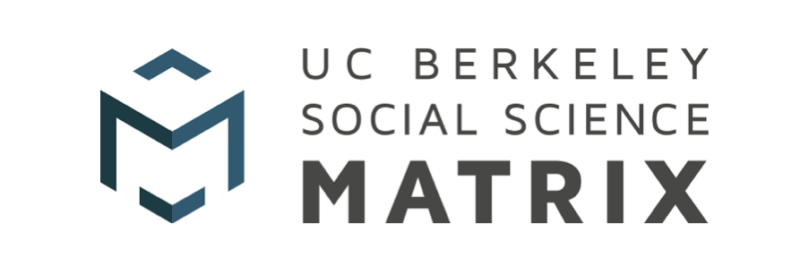

 Matrix is also pleased to announce a new joint program between UC Berkeley and
Matrix is also pleased to announce a new joint program between UC Berkeley and 


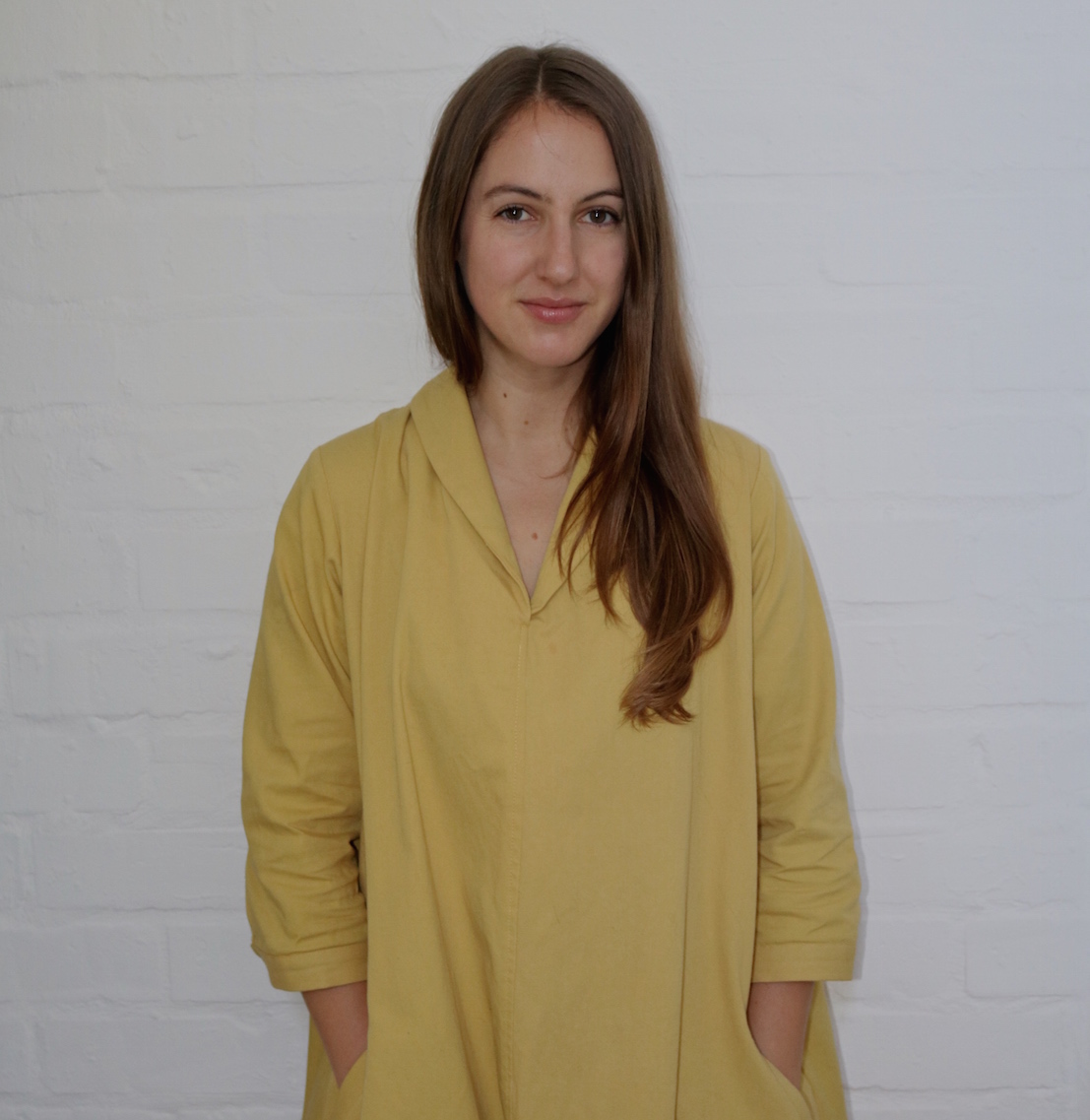 A doctoral candidate in the UC Berkeley Department of Anthropology, Brittany Birberick’s research focuses on factory spaces as key sites of urbanization, transformation, and development in Johannesburg, South Africa. She examines the multiple temporalities and migration that define the city in a moment of transformation.
A doctoral candidate in the UC Berkeley Department of Anthropology, Brittany Birberick’s research focuses on factory spaces as key sites of urbanization, transformation, and development in Johannesburg, South Africa. She examines the multiple temporalities and migration that define the city in a moment of transformation.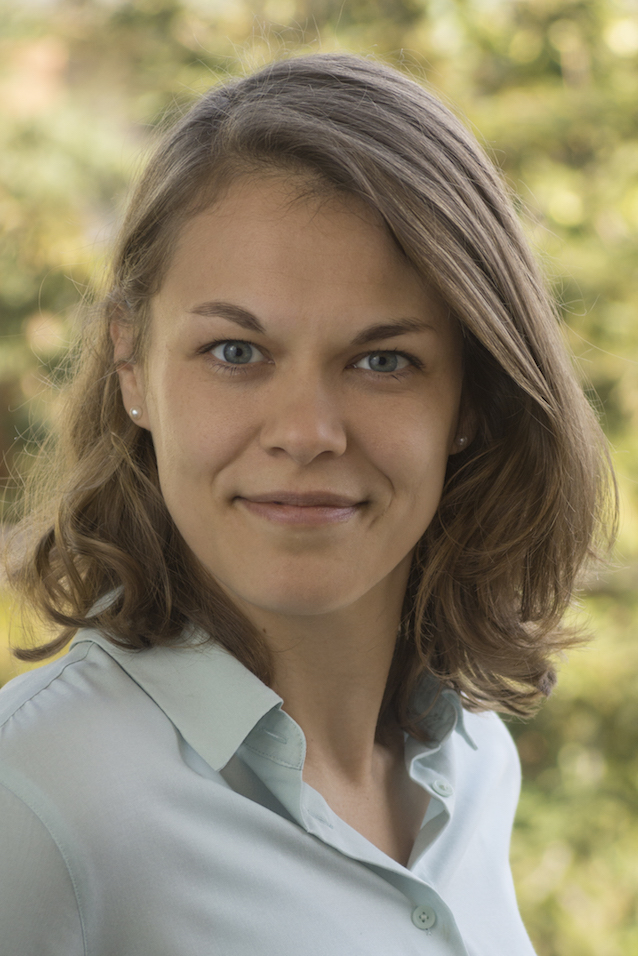
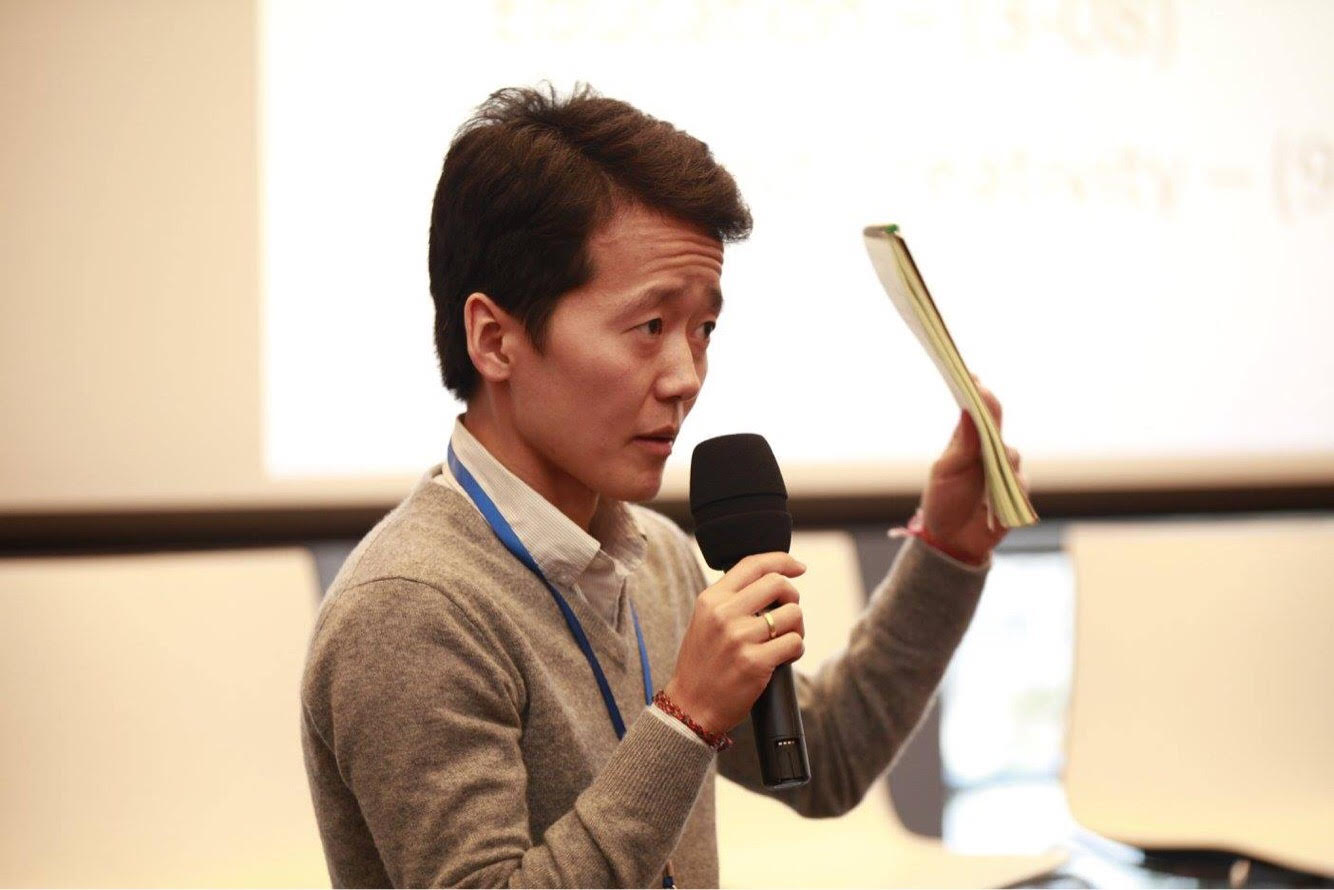 A PhD candidate in Rhetoric with a designated emphasis in women, gender, and sexuality. Tenzin Mingyur Paldron was born in India and raised in the United States. He is the author of
A PhD candidate in Rhetoric with a designated emphasis in women, gender, and sexuality. Tenzin Mingyur Paldron was born in India and raised in the United States. He is the author of 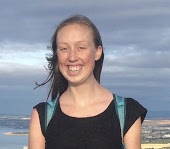 Julia Nee is a fourth-year PhD student in the Linguistics department. After finishing her BA in linguistics at the University of Chicago, she moved to Oaxaca, Mexico to teach English before returning to the U.S. to continue her education. During her time in Mexico, she began to study Teotitlán del Valle Zapotec, an indigenous language spoken outside of Oaxaca City. Her research now centers on language documentation and revitalization of this variety of Zapotec. When she is not working, she enjoys long-distance running, traveling on her bicycle, and getting lost in the woods.
Julia Nee is a fourth-year PhD student in the Linguistics department. After finishing her BA in linguistics at the University of Chicago, she moved to Oaxaca, Mexico to teach English before returning to the U.S. to continue her education. During her time in Mexico, she began to study Teotitlán del Valle Zapotec, an indigenous language spoken outside of Oaxaca City. Her research now centers on language documentation and revitalization of this variety of Zapotec. When she is not working, she enjoys long-distance running, traveling on her bicycle, and getting lost in the woods.
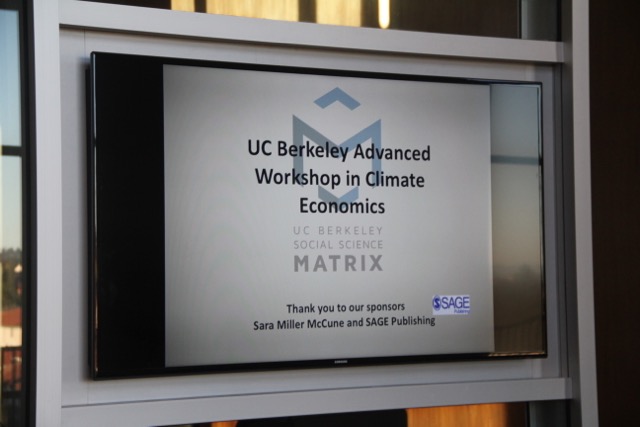
 Day 1
Day 1 UC Berkeley graduate student Hannah Druckenmiller presented new work that will allow future generations of researchers to use simple methods from time series analysis in a spatial context. Her research has potential to save tens of thousands of computing and coding hours and increase the precision of empirical climate impacts estimates.
UC Berkeley graduate student Hannah Druckenmiller presented new work that will allow future generations of researchers to use simple methods from time series analysis in a spatial context. Her research has potential to save tens of thousands of computing and coding hours and increase the precision of empirical climate impacts estimates.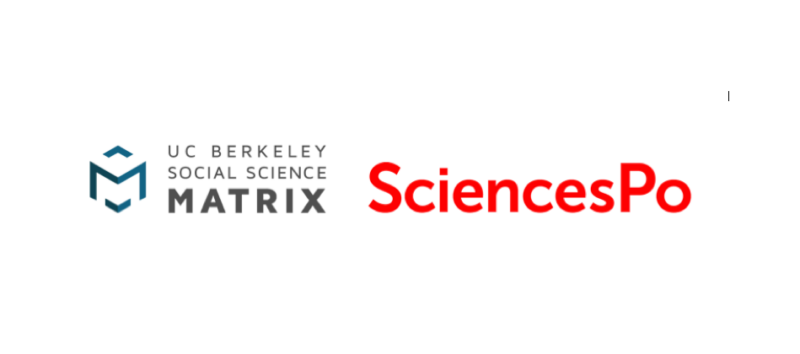

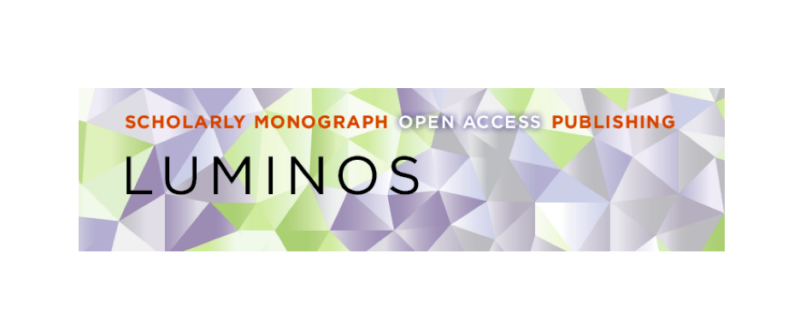
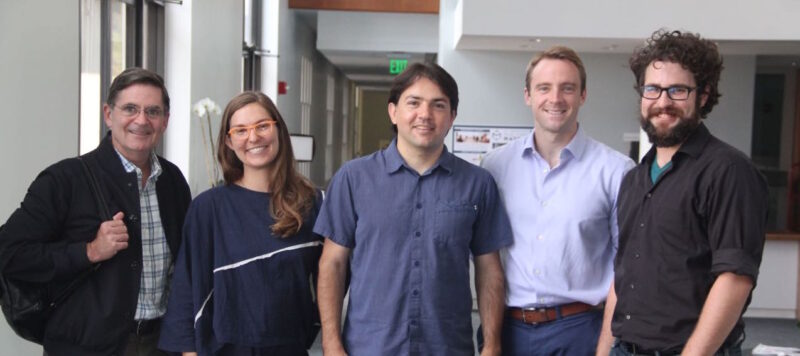
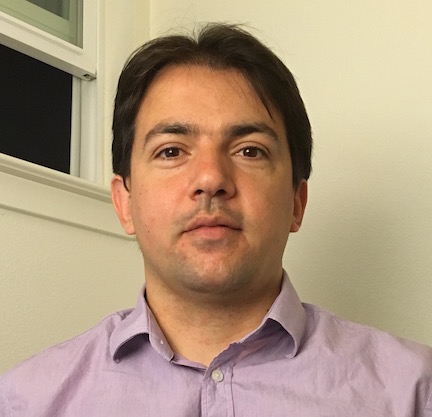 Gabriel Mendes Borges, Demography
Gabriel Mendes Borges, Demography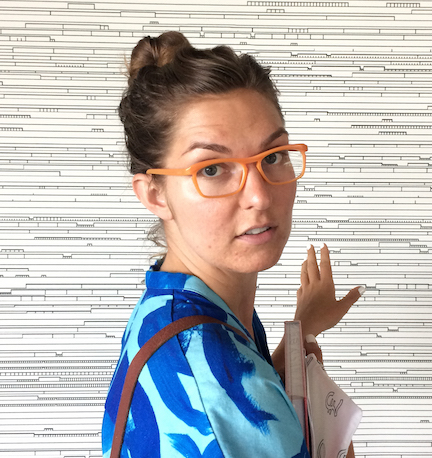 Ann Elena Stinchfield Danis, Anthropology
Ann Elena Stinchfield Danis, Anthropology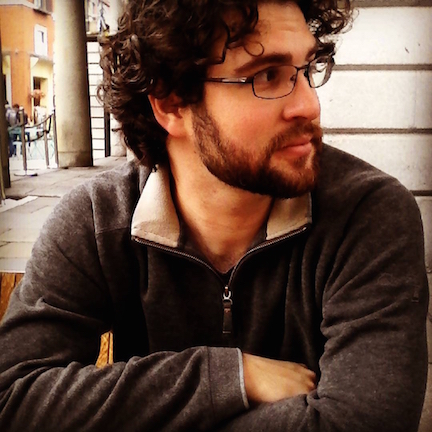 Jeff Vance Martin, Geography
Jeff Vance Martin, Geography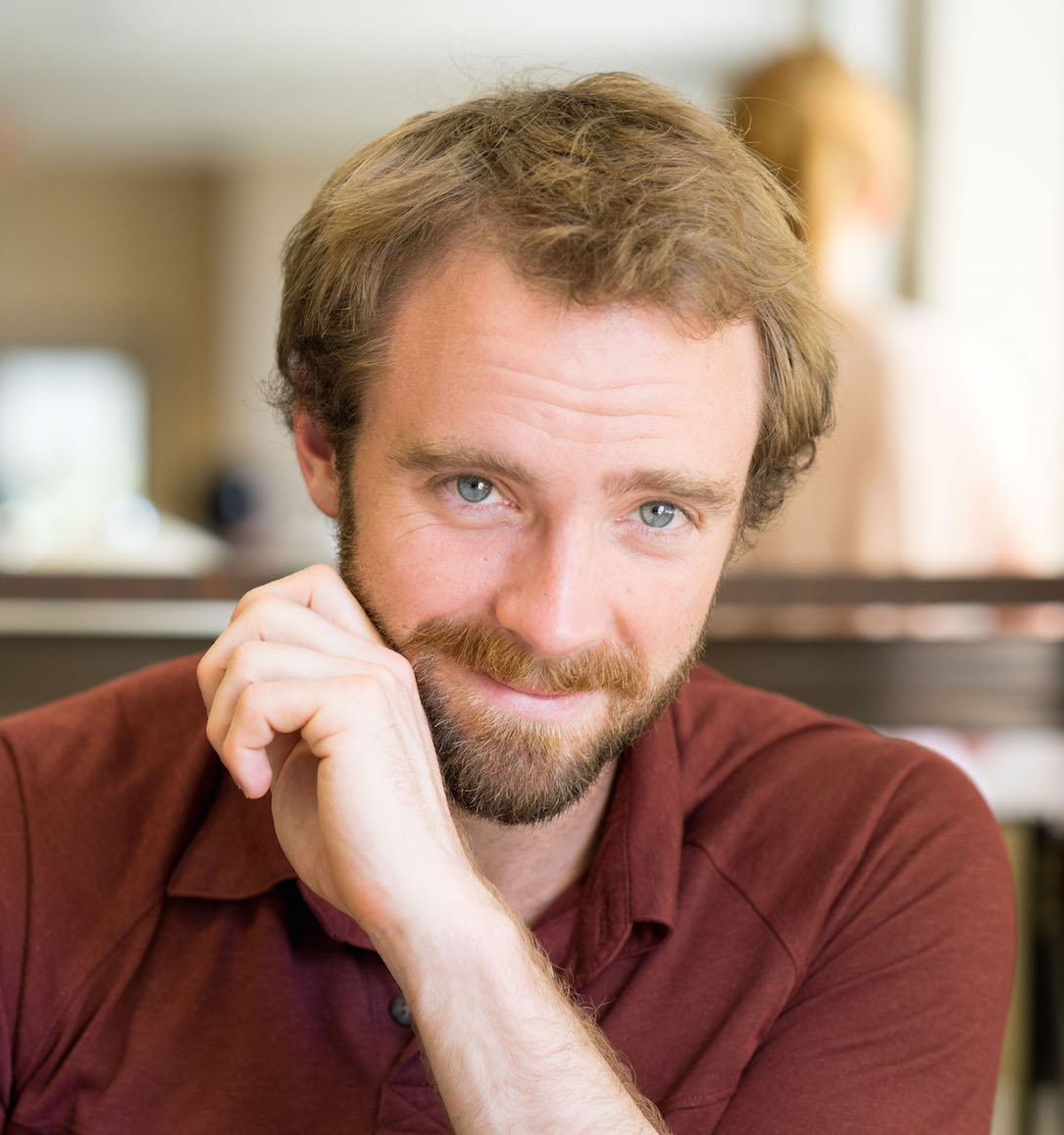 Derek Kane O’Leary, History
Derek Kane O’Leary, History